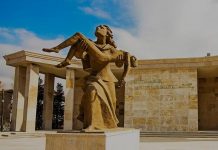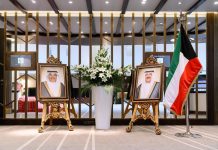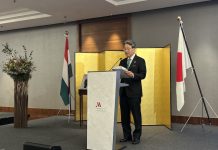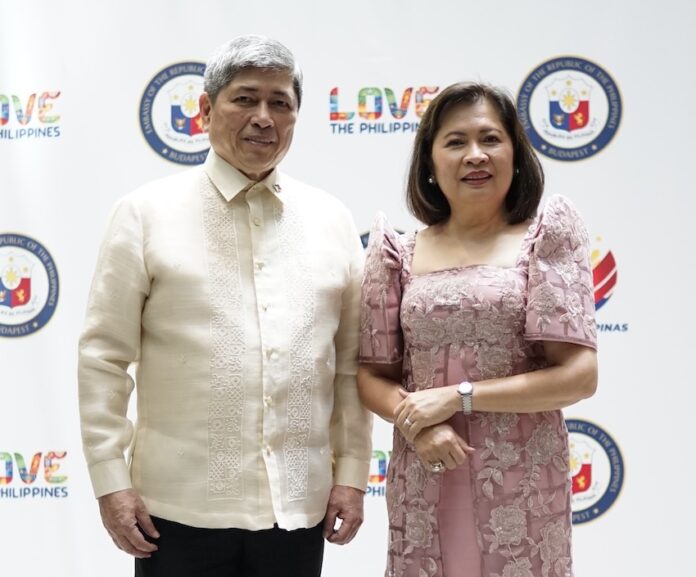Edited by Anna Popper
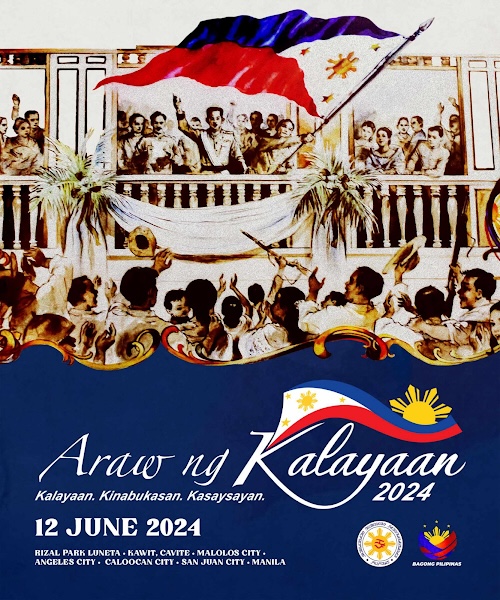
12 June 2024 marks the 126th anniversary of Philippine Independence, a day celebrated as “Araw ng Kasarinlan” or “Araw ng Kalayaan”. This historic date commemorates the Proclamation of Independence on 12 June 1898, ending 333 years of Spanish colonial rule. It symbolises the Philippines’ rich history and highlights the enduring spirit, courage, resilience and unity of its people. This day honours their arduous struggle for sovereignty and the attainment of a national identity. It also provides an opportunity for Filipinos worldwide to celebrate their heritage and reaffirm their commitment to the values of freedom and independence.
On this momentous occasion, H.E. Frank Revil Cimafranca, Ambassador of the Republic of the Philippines to Hungary and his wife Lucila C. Cimafranca hosted a diplomatic reception, accompanied by a musical program featuring Filipino and Hungarian pieces, providing a vibrant and culturally enriching experience.

The event was held at the Donau Ballroom of Dorothea Hotel, one of the newest luxury hotels in Budapest. More than 150 guests attended the celebratory event, including members of the diplomatic corps, officials of the Hungarian government, representatives of business sector, academic and cultural institutions, the Philippine Honorary Consul in Chisinäu (Moldova), Mr. Victor Gaina, and members of the Filipino community in Hungary.
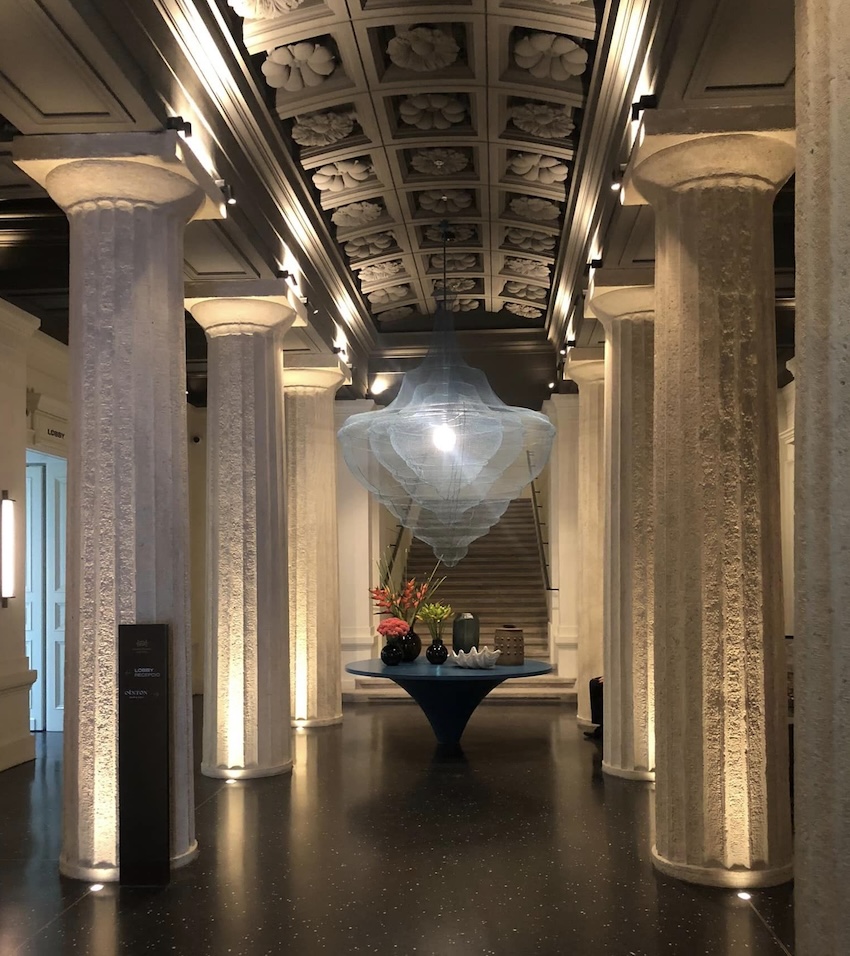

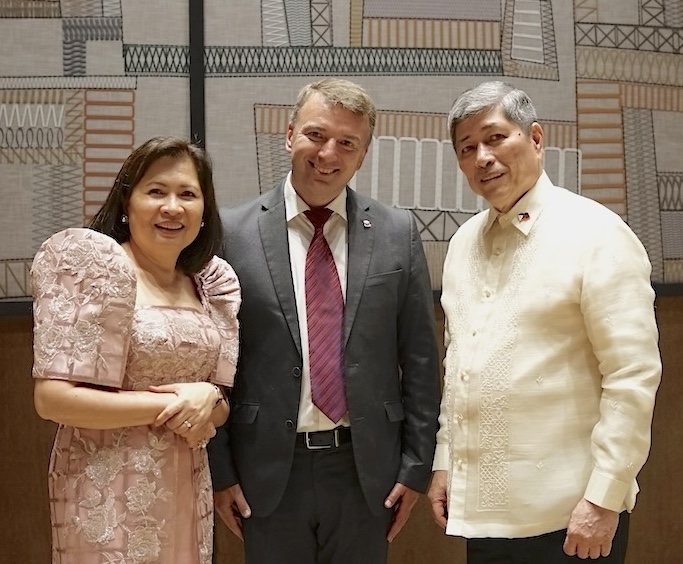





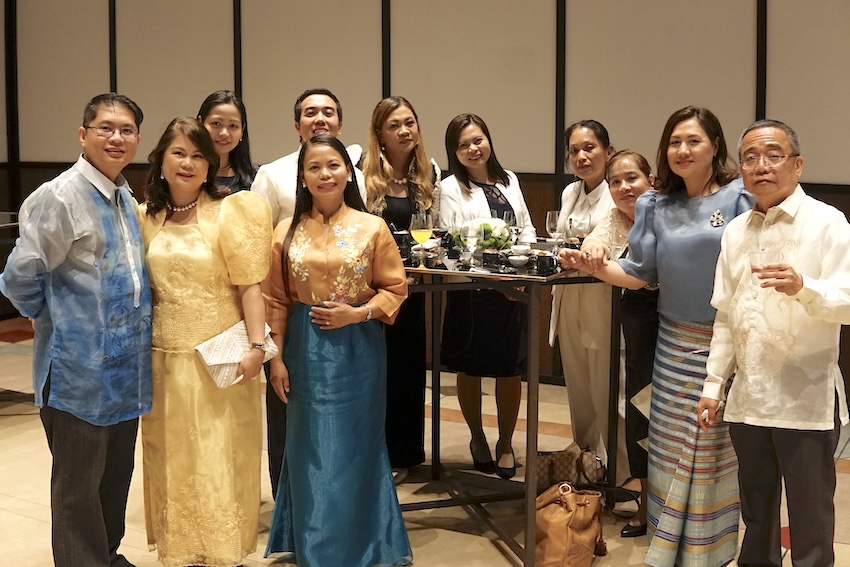
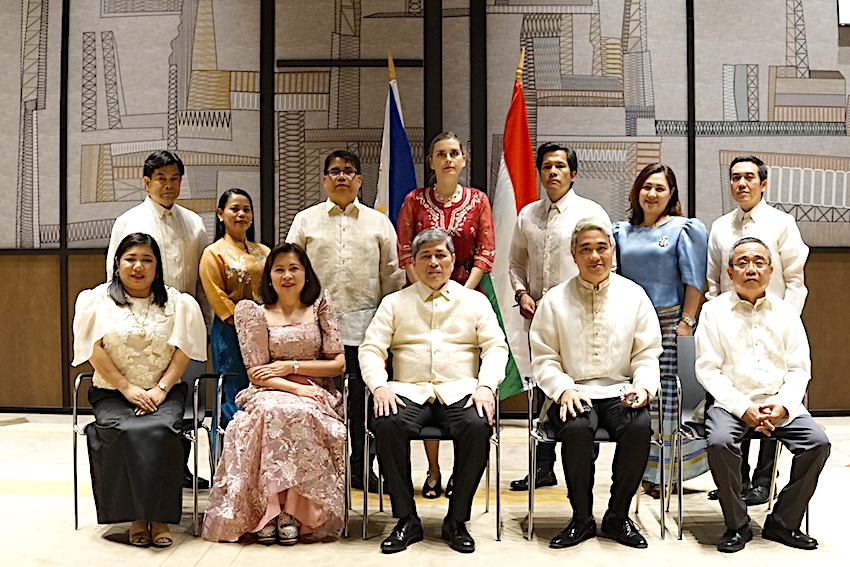
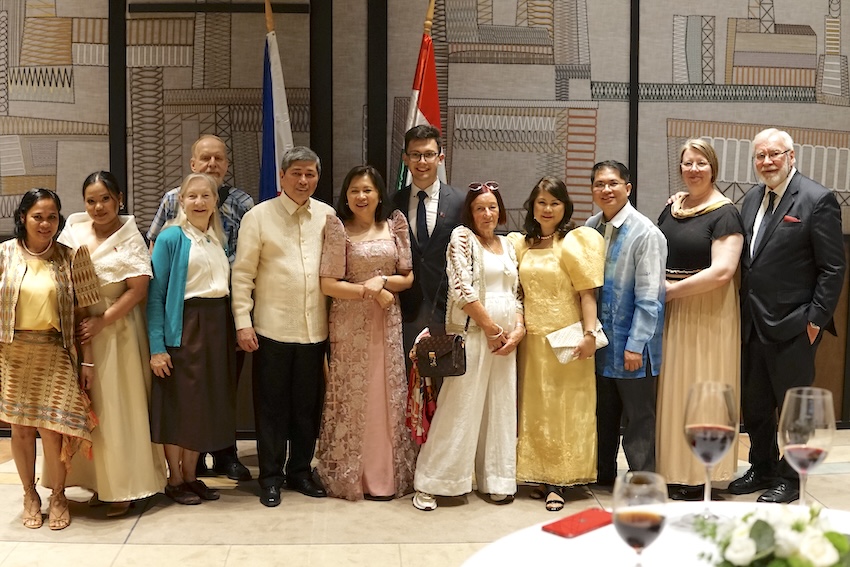
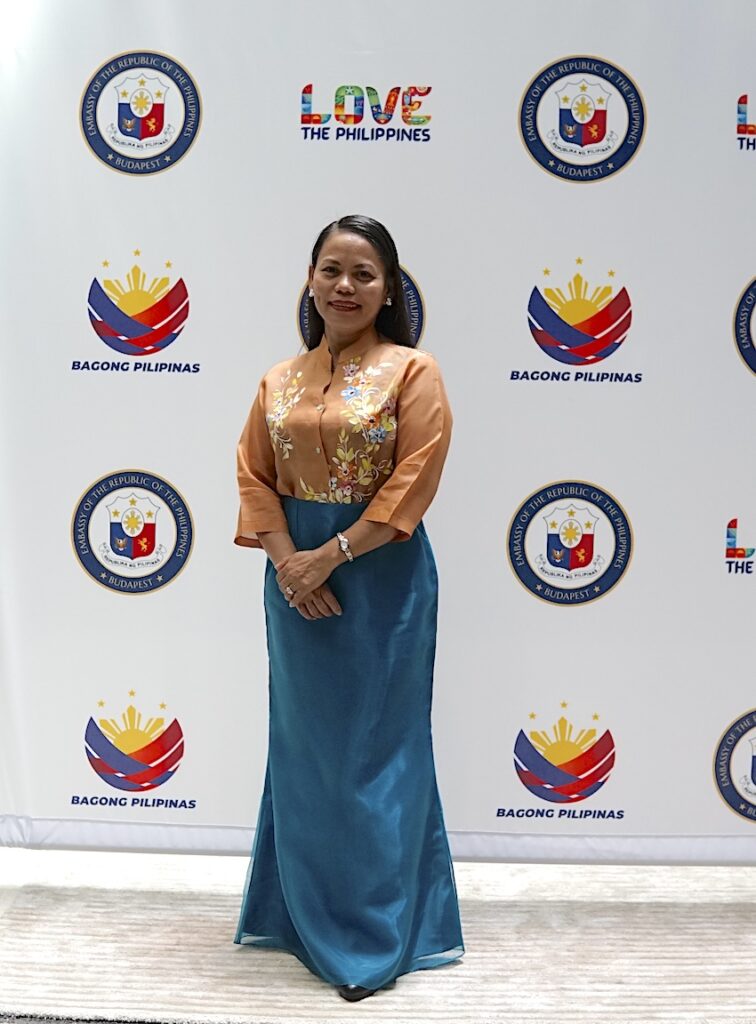
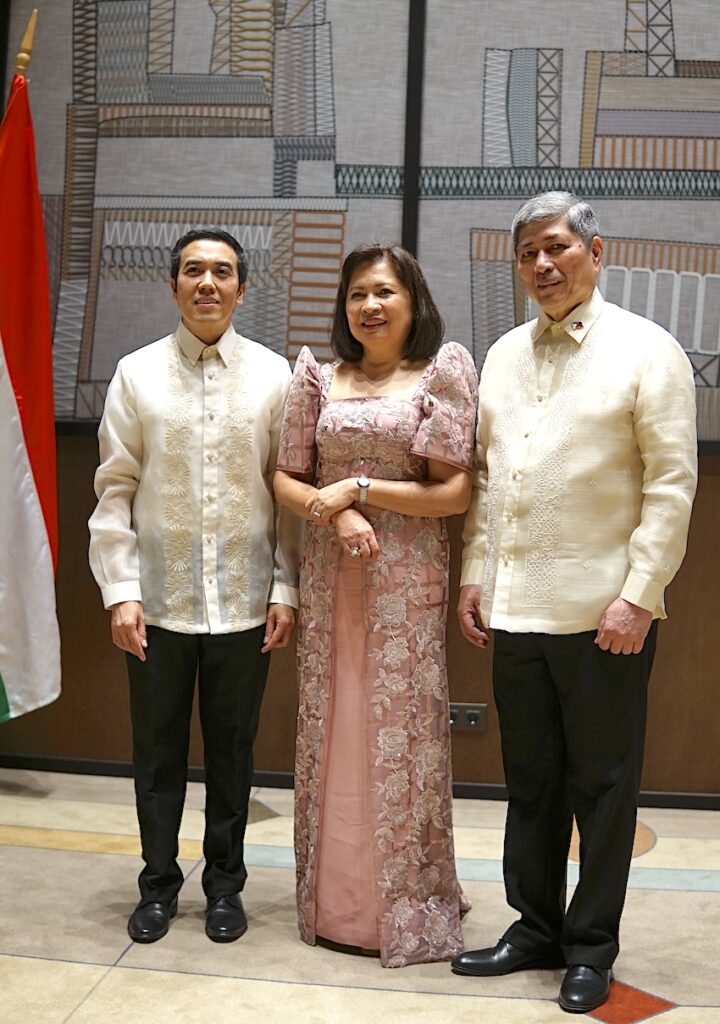
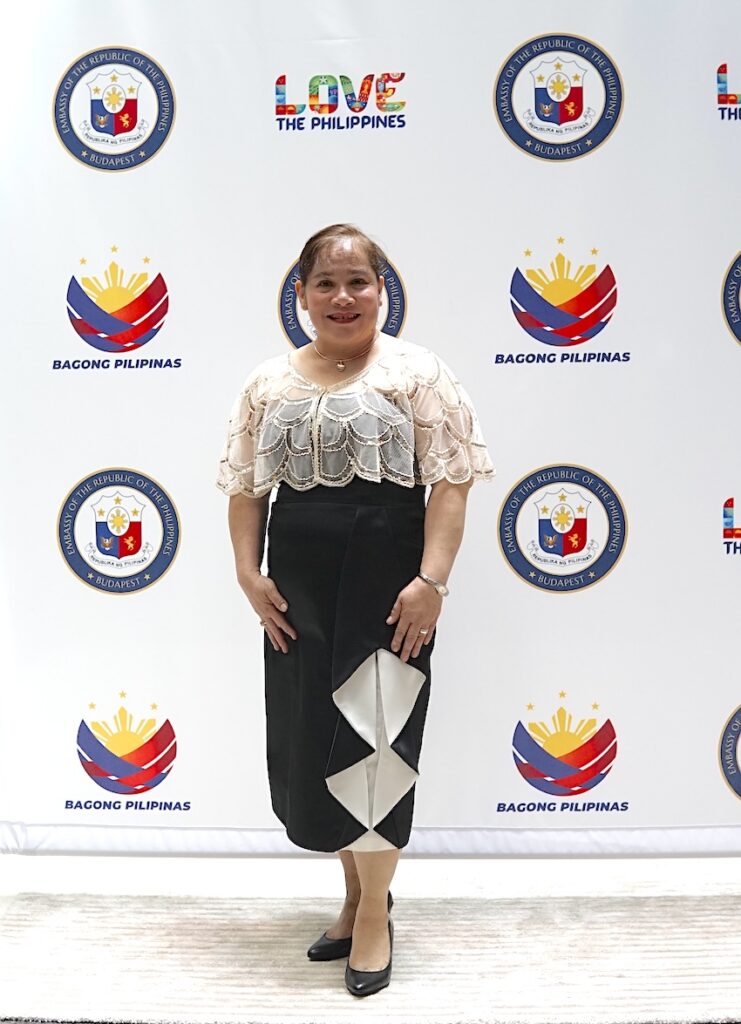
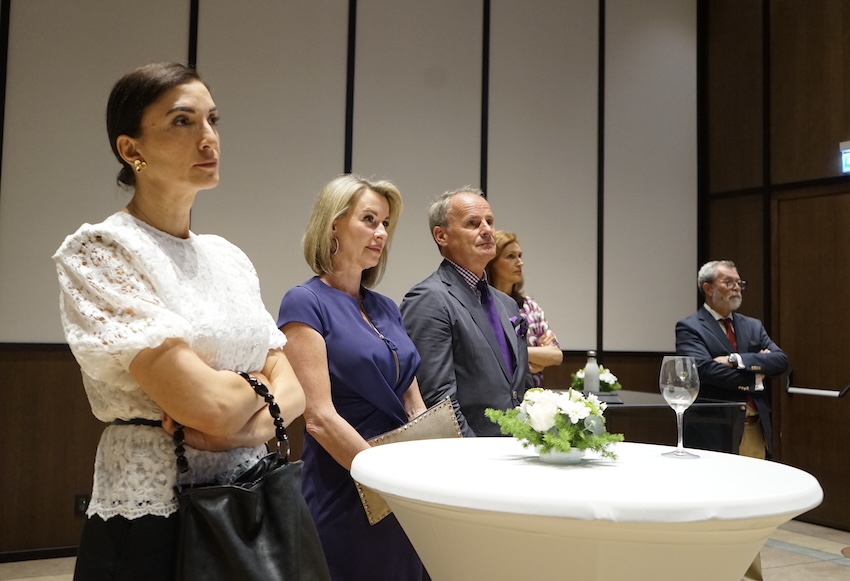
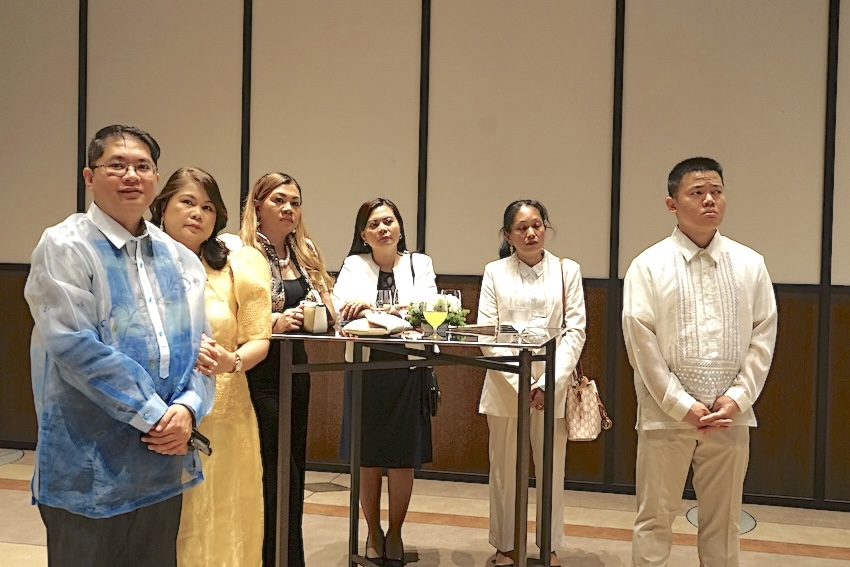
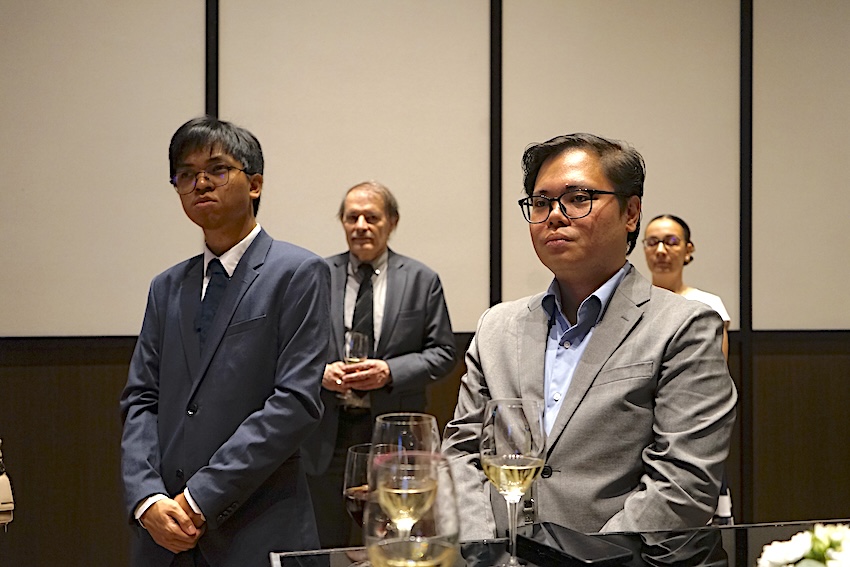
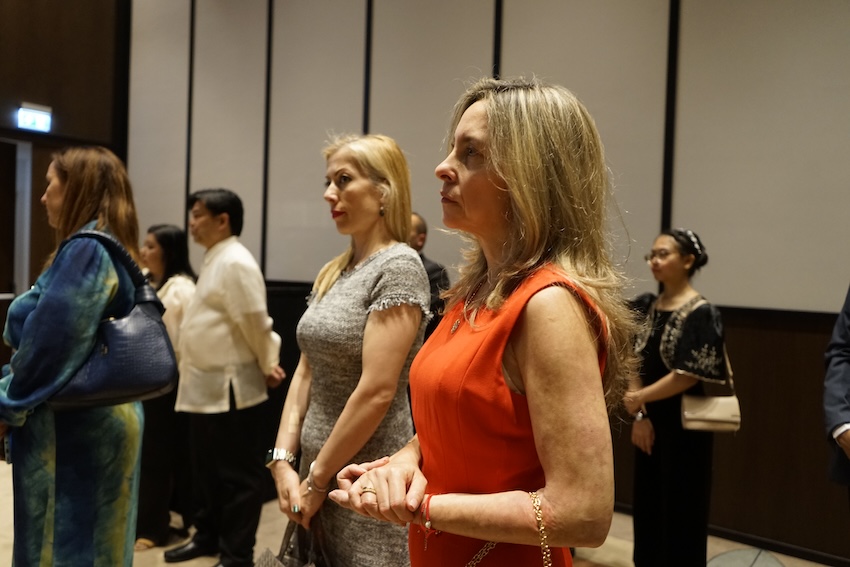
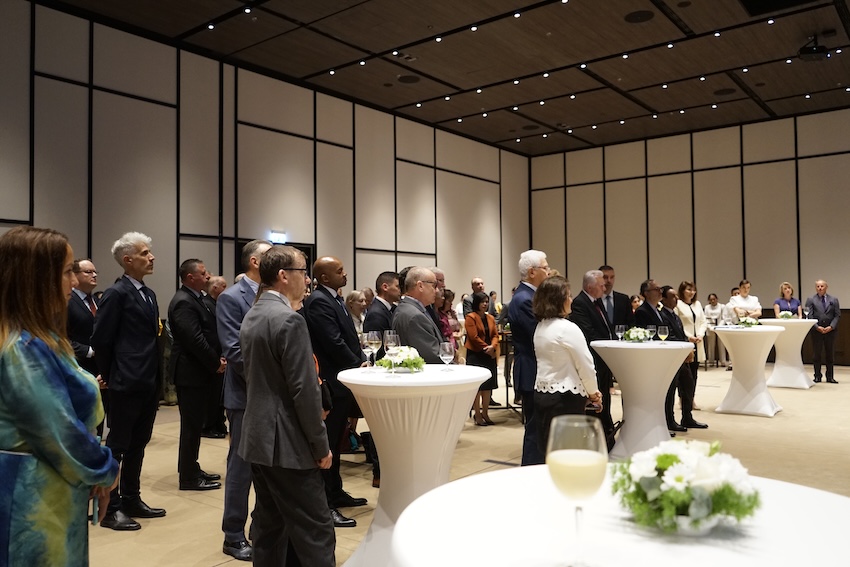
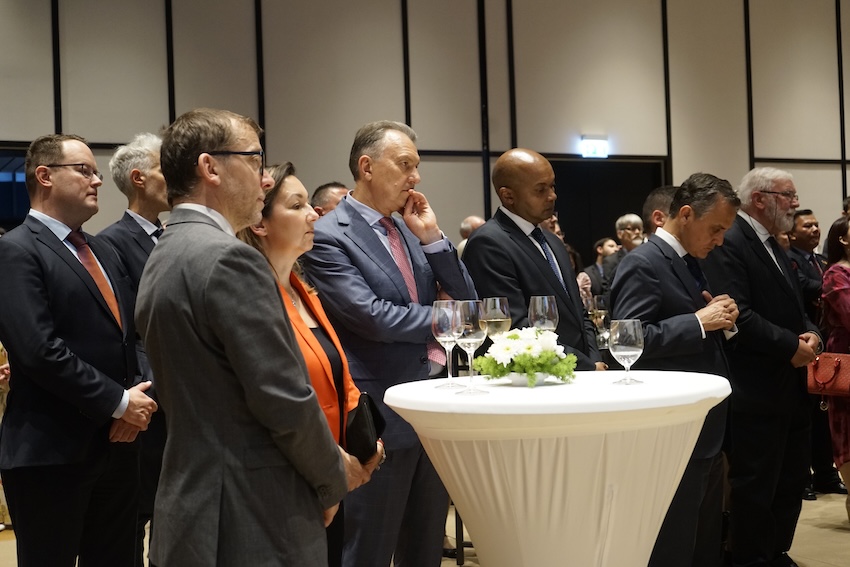
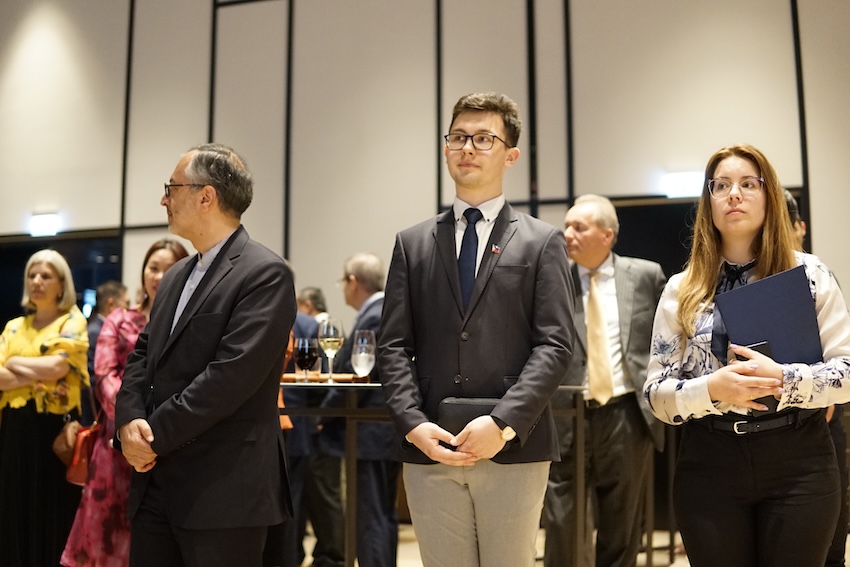
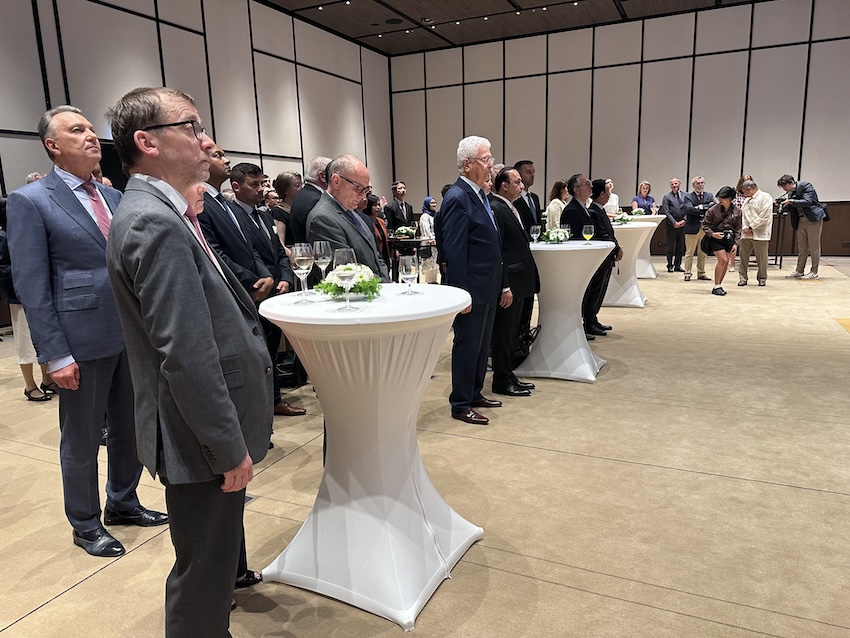
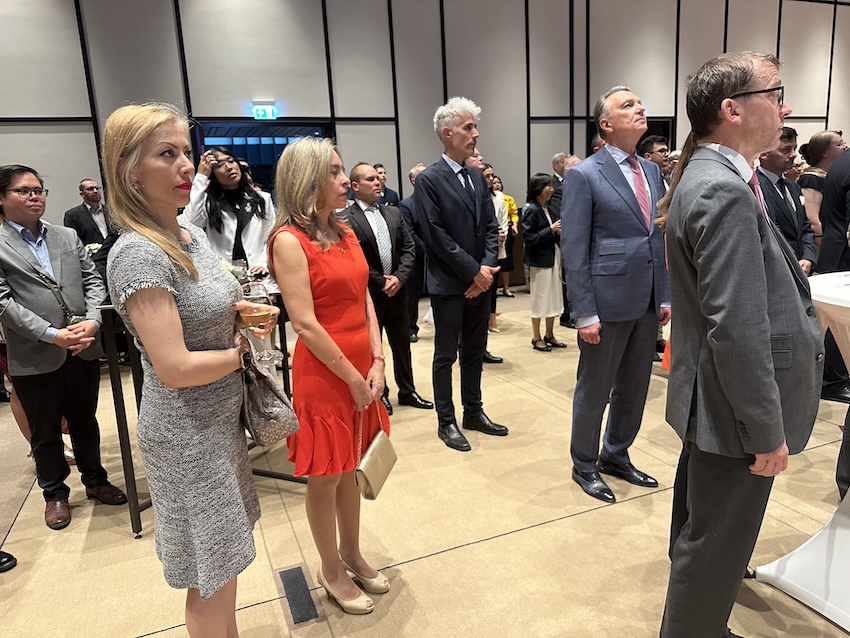
The State Secretary for Bilateral Affairs of the Hungarian Ministry of Foreign Affairs, Ms. Boglárka Illés was the guest of honour and Hon. István Jakab, Deputy Speaker of the Hungarian National Assembly and Chair of the Hungary-Philippines Friendship Group, also graced the reception with his presence.
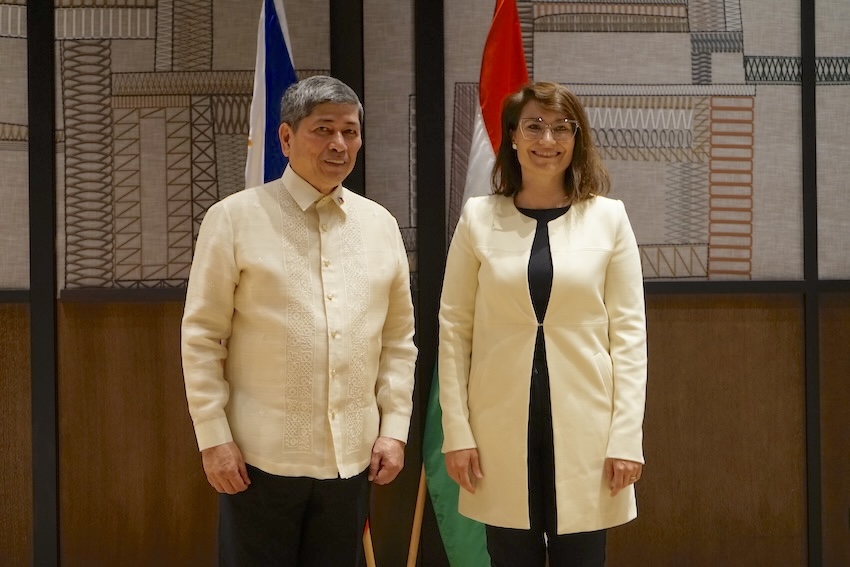
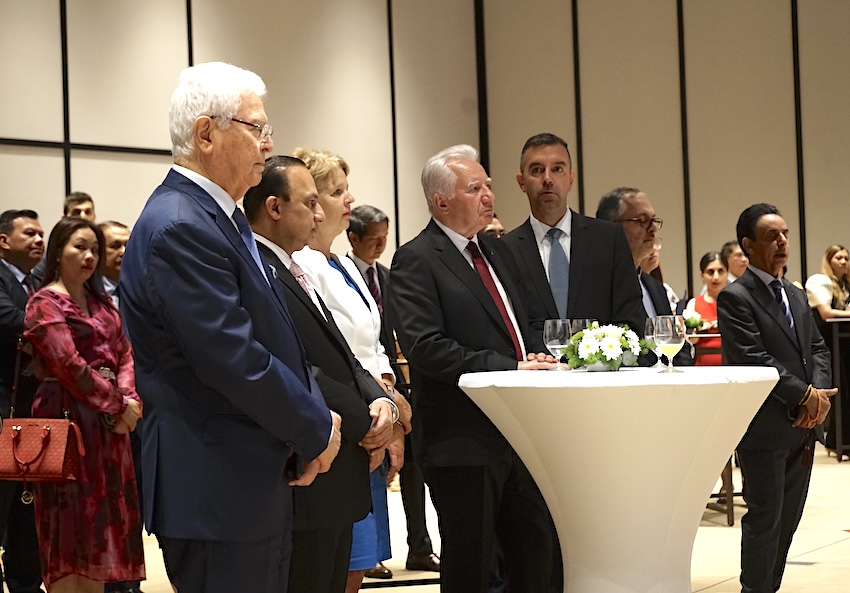
The event commenced with the national anthems of the Republic of the Philippines and Hungary. Following this, Ambassador Cimafranca was invited to deliver his remarks to the audience:

“It is with great honour and immense pleasure that I welcome you all to this outstanding gathering commemorating the 126th anniversary of Philippine Independence under the theme ‘Kalayaan, Kinabukasan, Kasayasayan’, which translates from Filipino to ‘Freedom, Future and Past’ in English. These words resonate deeply in our hearts as we reflect on the struggles and triumphs that have defined our journey toward freedom and self-determination. It serves as a poignant reminder of the sacrifices our forebears made in 1898 in pursuit of liberty and nationhood, values that continue to inspire us as we strive for a brighter future.
As we gather here this evening, let us also take pride in the remarkable strides the Philippines has made in recent years, particularly in its economic development, with the Philippines forecast by the World Bank achieve growth at 5.8%, making it the second fastest-growing economy in East Asia and the Pacific.
This is being done under the visionary leadership of President Ferdinand R. Marcos and his unwavering commitment to national transformation. His ‘Bagong Pilipinas’ campaign encapsulates our collective aspirations for a dynamic and progressive nation where every Filipino can realize their full potential and contribute meaningfully to society.
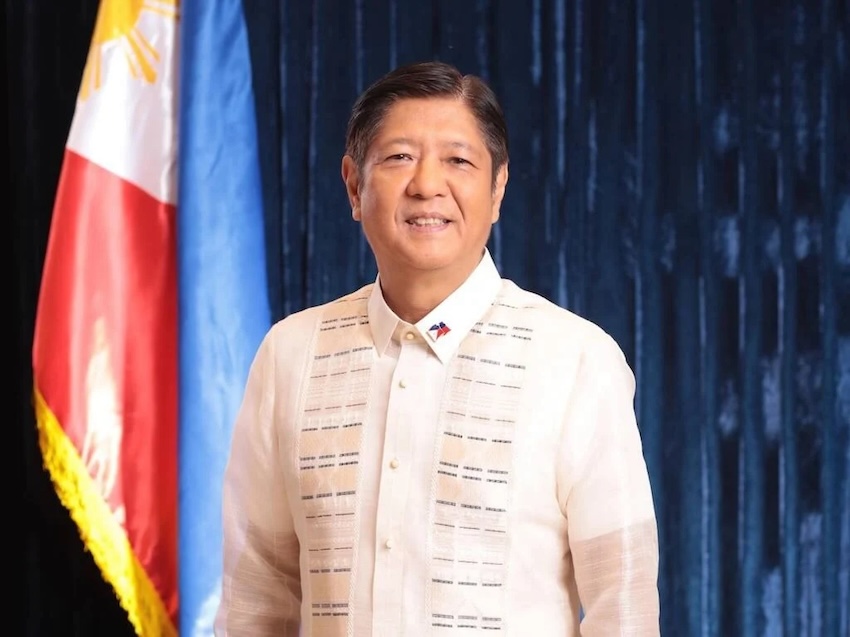

Under this campaign, our agenda for economic growth is ambitious and multifaceted, encompassing initiatives aimed at infrastructure development, human capital enhancement, digital transformation, and sustainable practices.
To enhance the country’s investment appeal, the Philippines has undertaken key initiatives such as (1) significant inputs in roads, harbours, and other critical infrastructure, with opportunities for foreign investors through public-private partnerships; (2) 100% foreign ownership in renewable energy projects; (3) reforms in key sectors like airports and telecommunications; (4) free trade agreements to expand market access; and (5) series of legislative and regulatory measures to create a more open and attractive investment climate.
Our efforts to keep our economy robust can only be meaningful if we are as rigorous in protecting our patrimony, rights and dignity as a proud and free country. Our steadfast actions not only recently or even a decade ago, but also in past generations demonstrate our firm commitment to regional and global peace.
In 1945, the Philippines was among the 51 original founding Member States and one of only four Asian nations to sign the UN Charter.
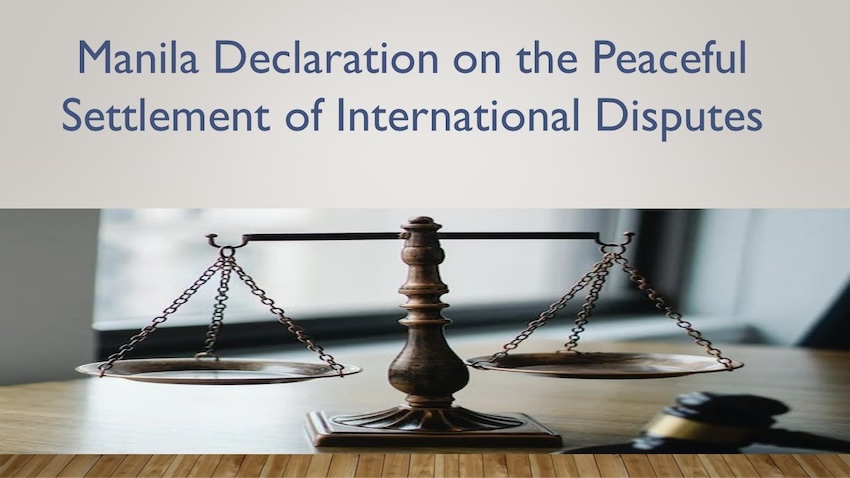
Notably, the Philippines led the efforts of our global community to unanimously adopt the Manila Declaration on the Peaceful Settlement of Disputes in November 1982. It reaffirms the fundamental principles of the UN Charter, including the obligation of all States to settle their international disputes by peaceful means in such a manner that does not endanger international peace and security, and justice. It also reaffirms the obligation for all States to refrain in their international relations from the threat or use of force against the territorial integrity or political independence of any State, or in any other manner inconsistent with the purposes of the United Nations.
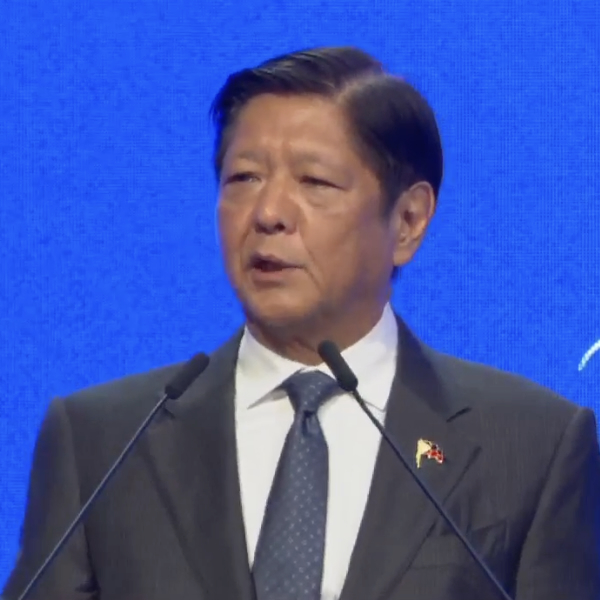
Our stance has not changed. Let me take this opportunity to repeat what our President said at the UN General Assembly almost two years ago:
‘Our open, inclusive, and rules-based international order is governed by international law and informed by the principles of equity and of justice, and serves as the chief stabilizing tool to keep us steady in turbulent seas.’
We renew our commitment to this rules-based order, not only in our immediate neighbourhood in the South and East China Seas, but also in the Middle East and Europe, even as we leave no stone unturned in seeking just and lasting solutions to the conflicts that affect us all.
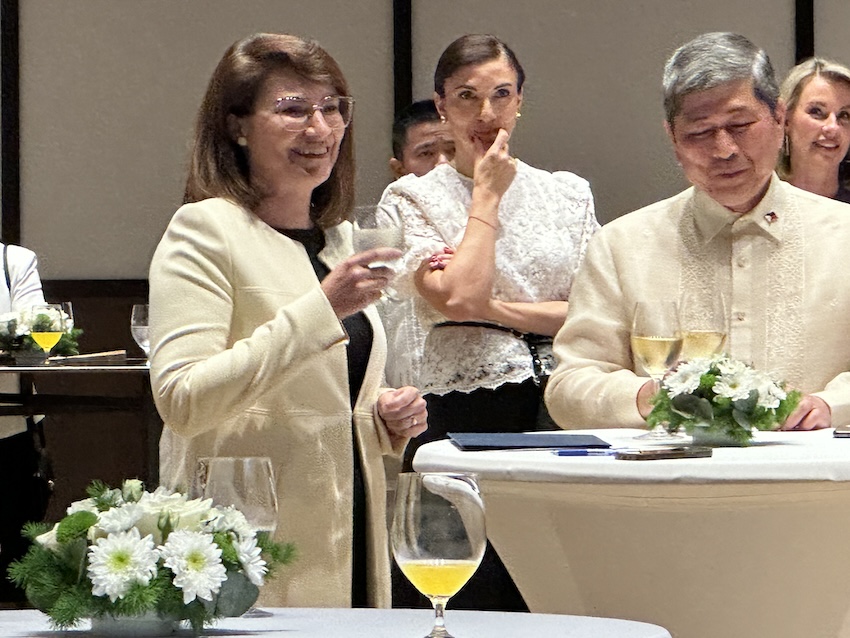
As we celebrate this milestone in our nation’s past and keep struggling for its future, I am particularly delighted to acknowledge the deep-rooted friendship and robust relations between the Philippines and Hungary.
I am pleased to recognize State Secretary Boglárka Illés, who has accepted our invitation to be here today to celebrate our growing and ever-closer partnership.
As we mark the 50th anniversary of the establishment of diplomatic relations between our countries this year, I am pleased to note the third visit of Hungarian Minister of Foreign Affairs Péter Szijjártó in Manila on 13 June 2024, his meeting with Secretary of Foreign Affairs Enrique A. Manalo co-chairing the 8th Philippines-Hungary Political Consultations and his meeting with President Marcos. Among the expected outcomes of the meeting is the official announcement on the opening of the Philippine Overseas Labour Office (POLO) in autumn as an extension of the Hungarian Embassy to manage the rapidly growing number of Filipino workers in Hungary, estimated to reach up to 15,000 by the end of 2023.
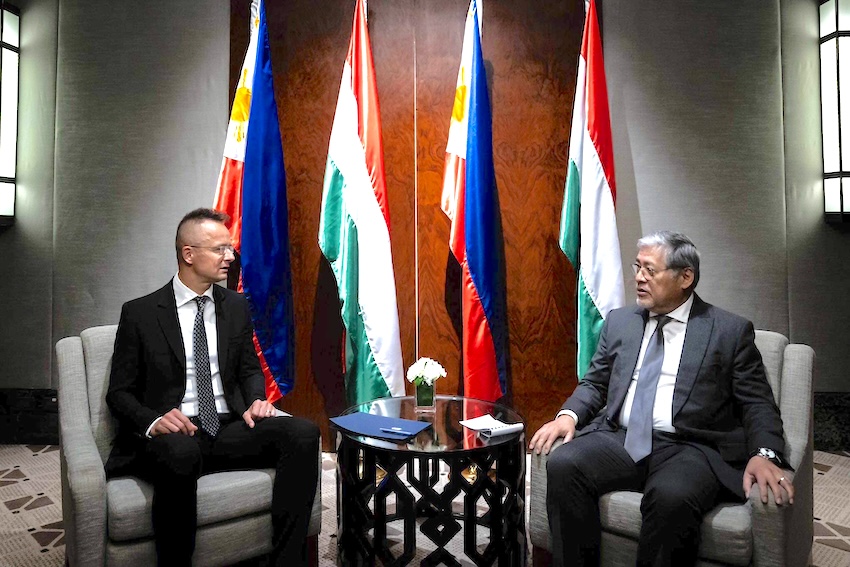
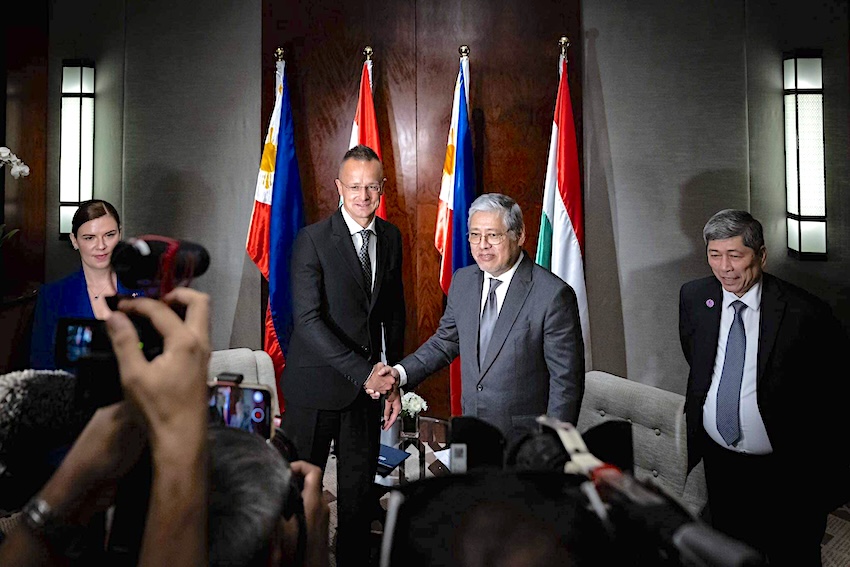
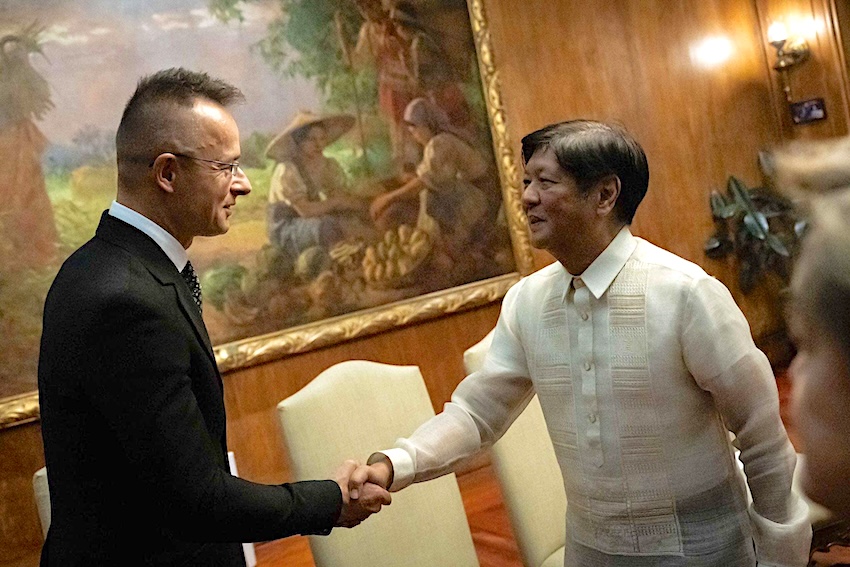
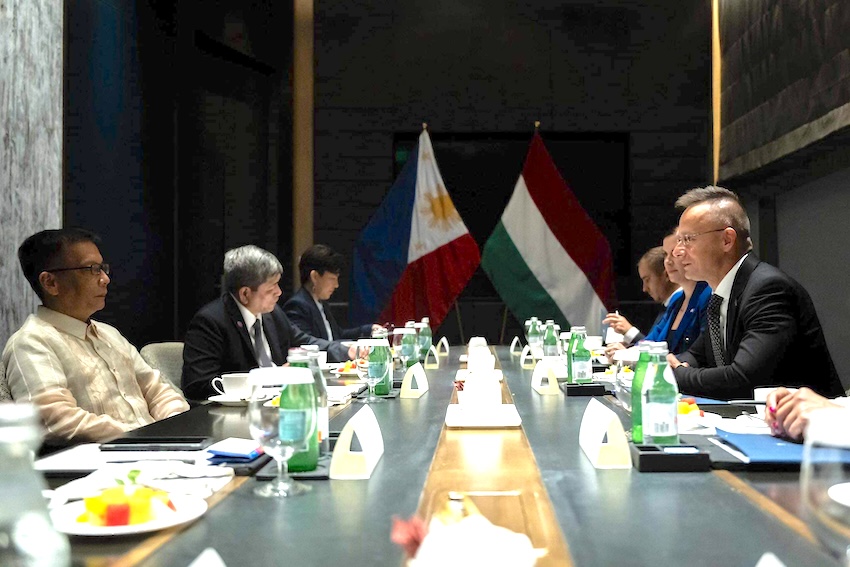
As a testament to the enduring camaraderie and mutual respect that binds our two nations, and literally our ability to make music together, our Embassy has organised for your enjoyment this year the performance of two outstanding musicians, Mr. Joseph Bryan Cimafranca, a vocalist and violinist, and Mr. József Terék, an accomplished player of the Hungarian woodwind instrument – tárogató.
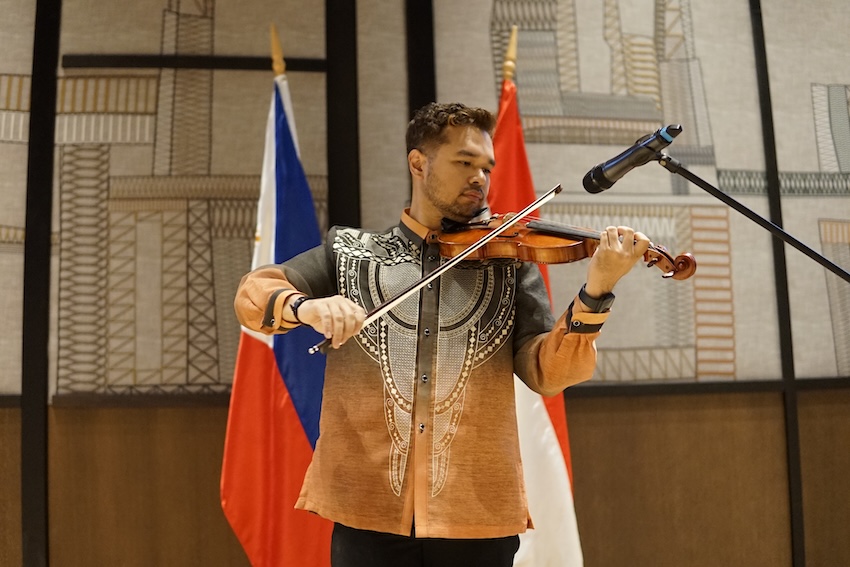
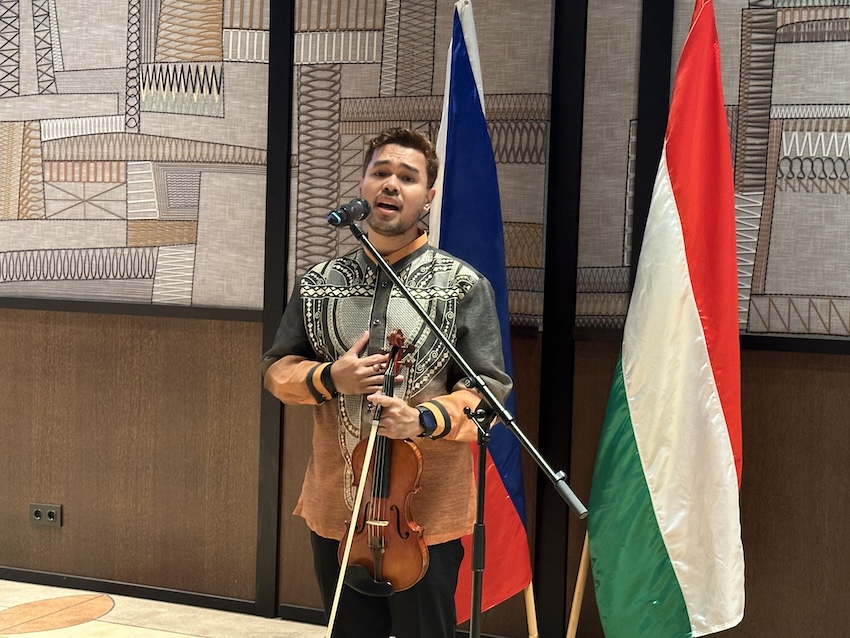
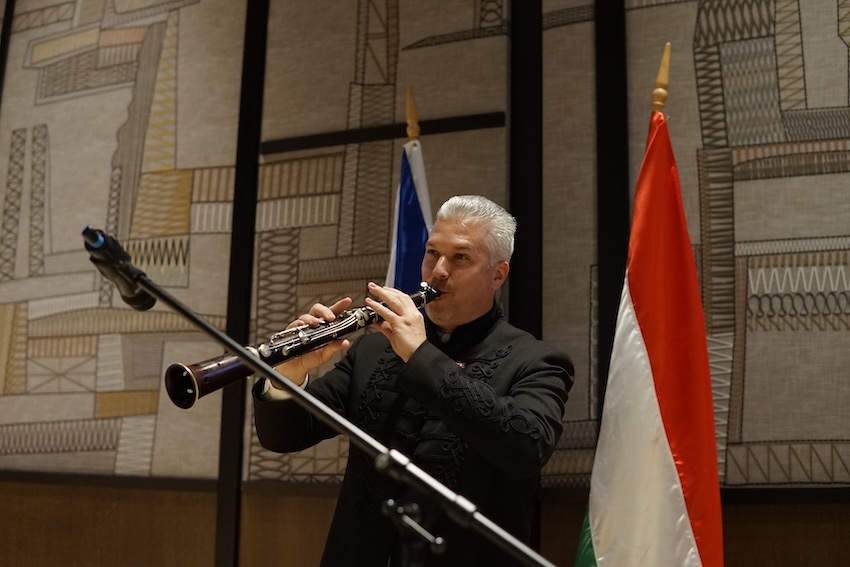
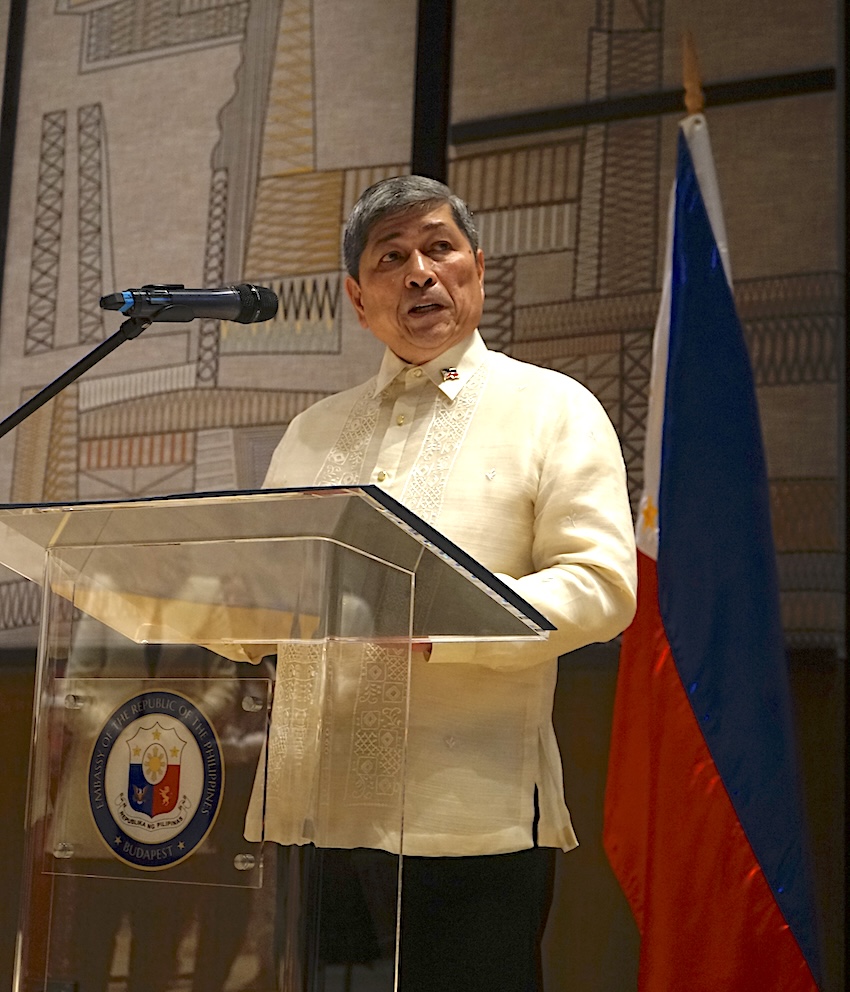
As we look to the future with cautious optimism, let us reaffirm our shared commitment to strengthening the bonds of friendship and cooperation between the Philippines and Hungary. Together, we can overcome any challenge and seize every opportunity to create a better world for both our peoples.
Distinguished Guests and Honoured Friends, Ladies and Gentlemen, thank you all for joining us in celebrating this joyous occasion. May our partnership continue to grow, our bridges of understanding reach farther, and our bonds of friendship deepen with each passing year. Cheers to a future filled with prosperity, partnership and shared success.”
“Maraming salamat at mabuhay ang Pilipinas! Mabuhay ang Hungary! – Thank you very much and long live the Philippines! Long live Hungary!”
The music program, as a highlight, started with Mr. Cimafranca violin performance a Cavatina by Stanley Myers, followed with Hátinggabi (Midnight) by Antonio Molina, and the traditional folk song Bahay Kubo. Mr. Terék then performed on tárogató (used in Hungarian folk music), the Verbunk, the Kálló Double Dance composed by Zoltán Kodály, and Katakataka (Wondering) by Santiago Suarez, which he arranged especially for the event. The repertoire was rounded with Béla Bartók’s Romanian Folk Dances, and Kailangan Kita (‘I Need You’) by Ogie Alcasid, and ended with Bayan Ko (My Country), composed by Constancio de Guzman.
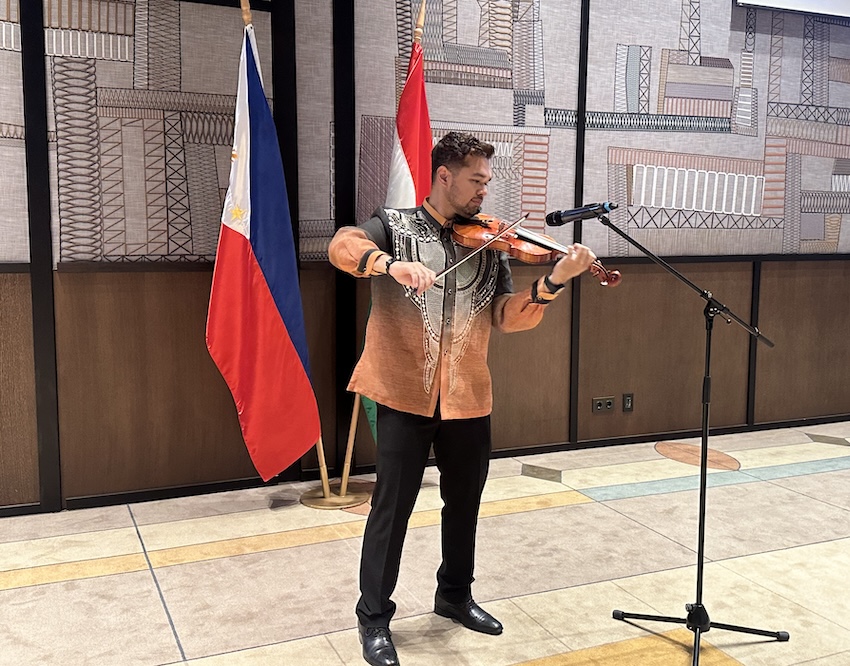
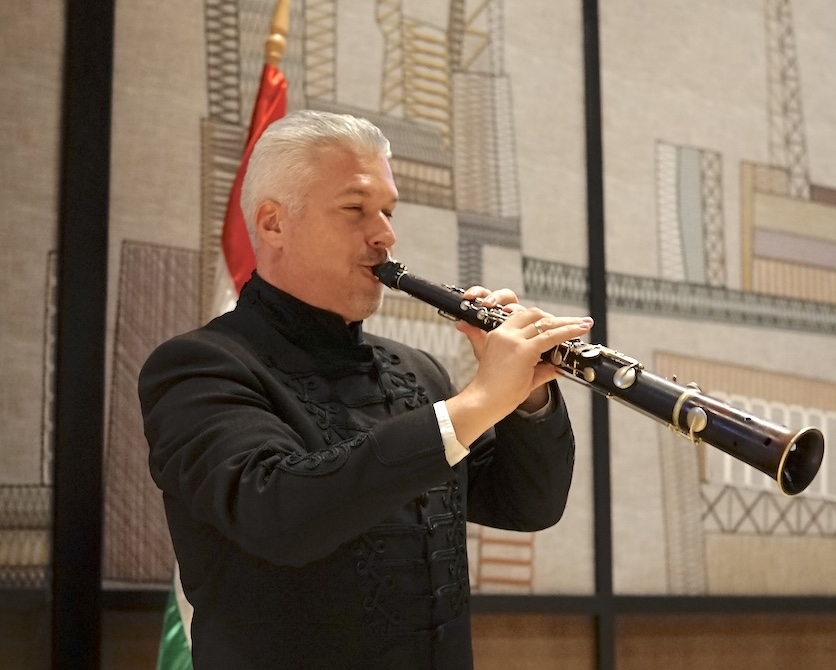
A delightful surprise musical performance brought together H.E. Ambassador Cimafranca, violinist Mr. Cimafranca, Philippine Madrigal Singers Executive Director Alfred Allan D. Samonte, and Project Manager Jeff Lyle Aragon. Their singing harmonized beautifully on the 1961 Elvis Presley hit “Can’t Help Falling in Love”, much to the audience’s appreciation.
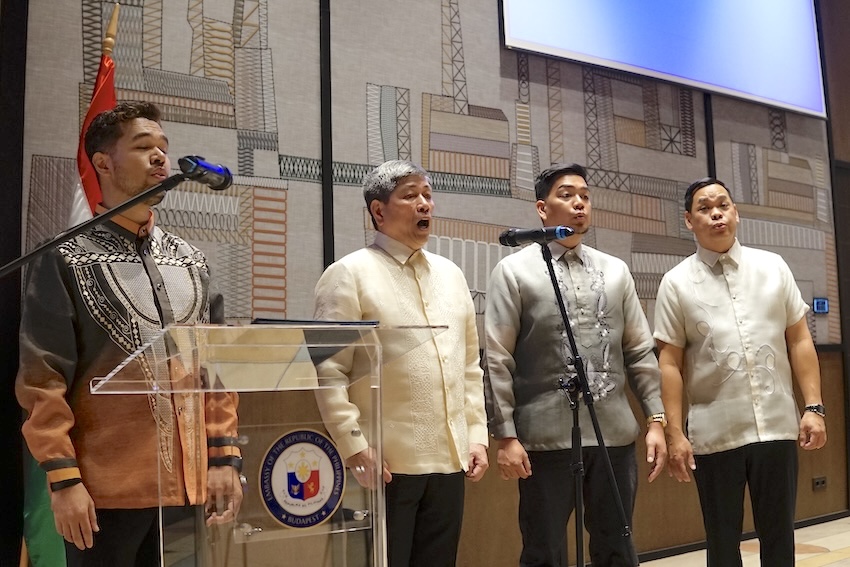
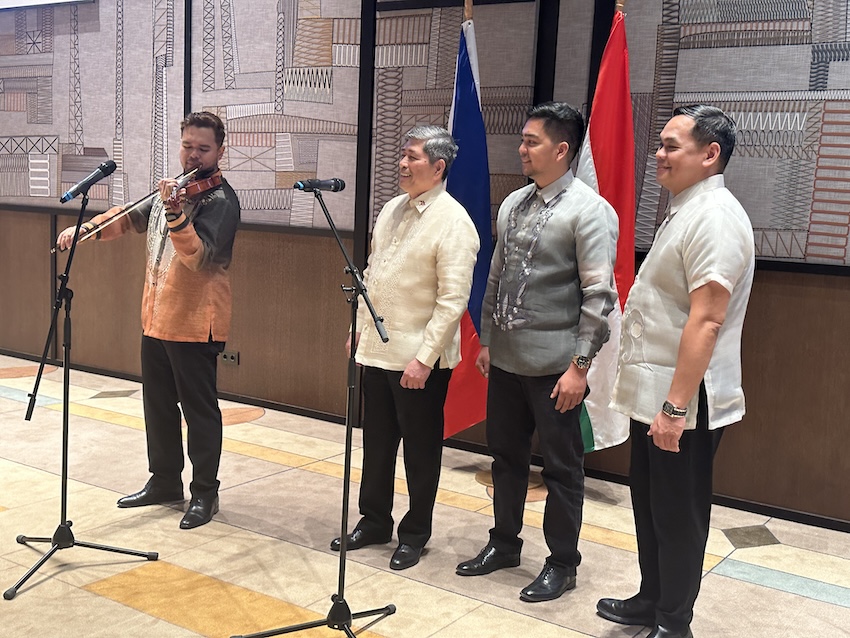
The event concluded with a reception offering specialties of Philippine cuisine.
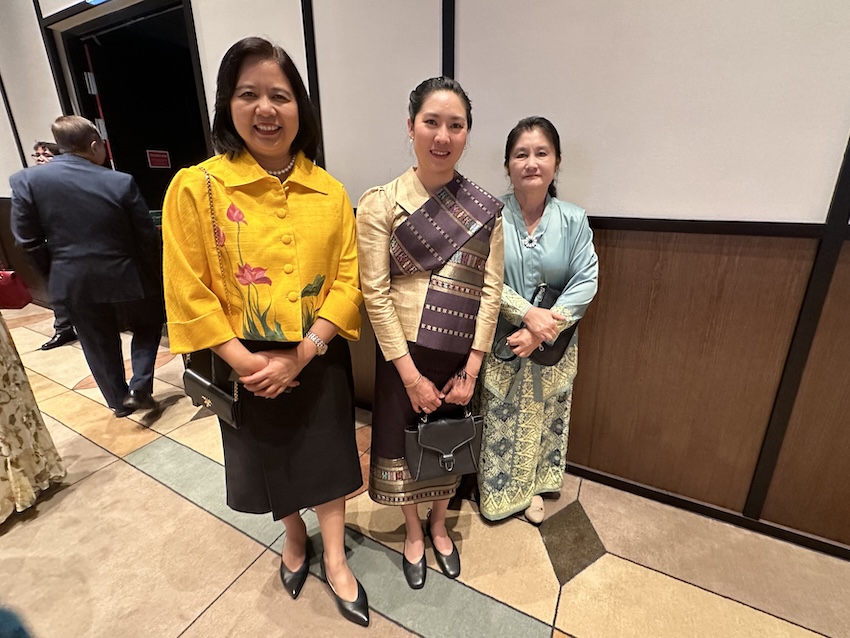

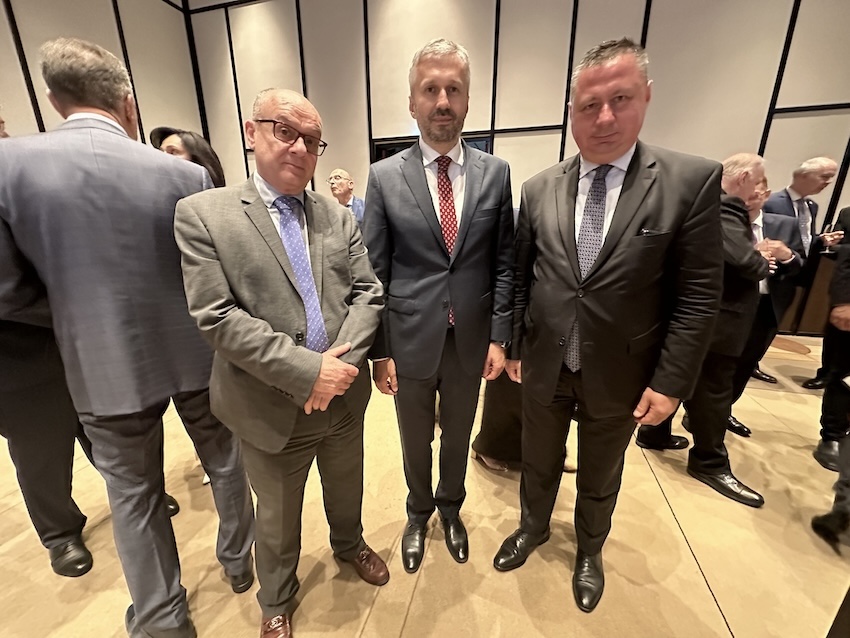
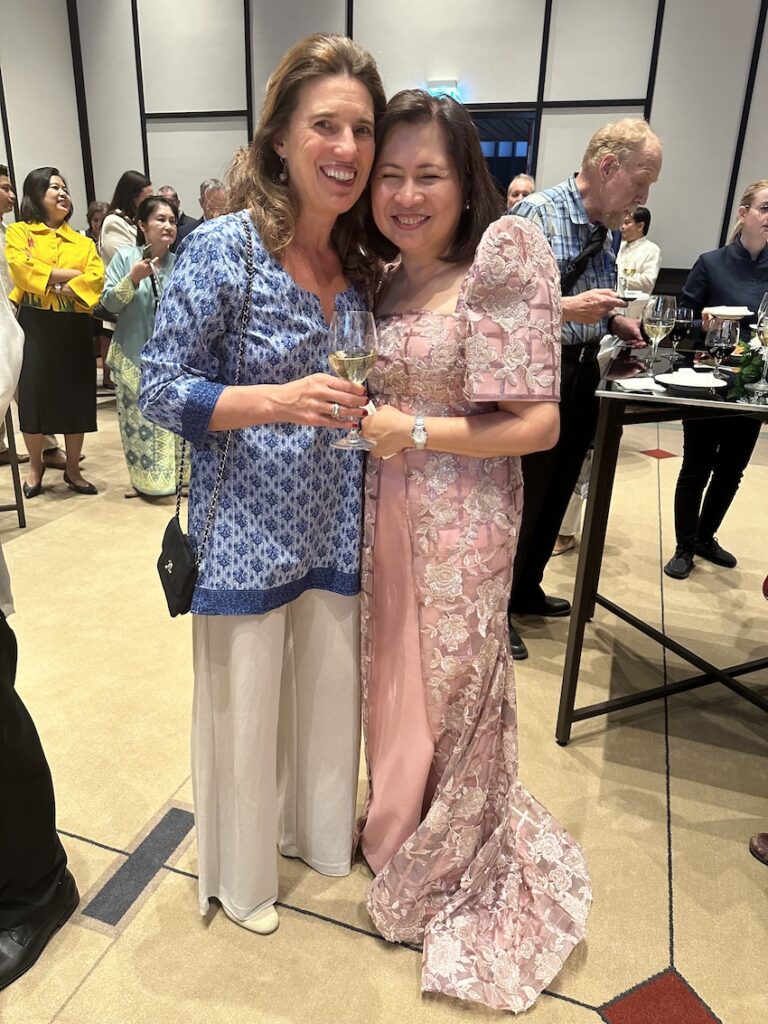
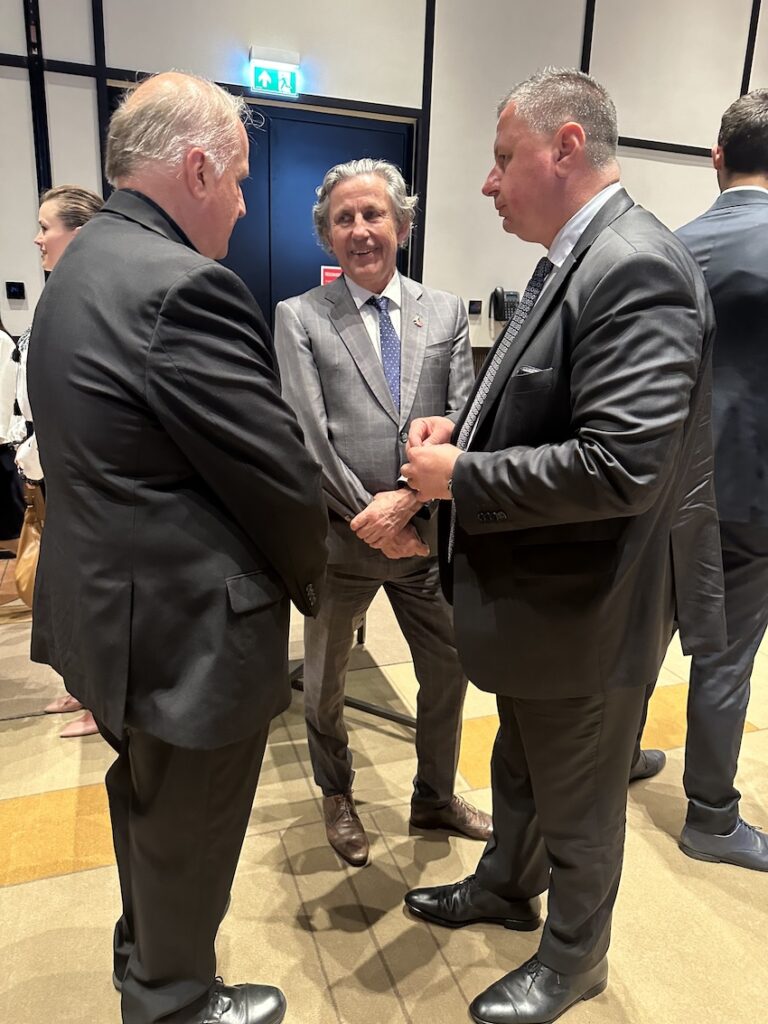
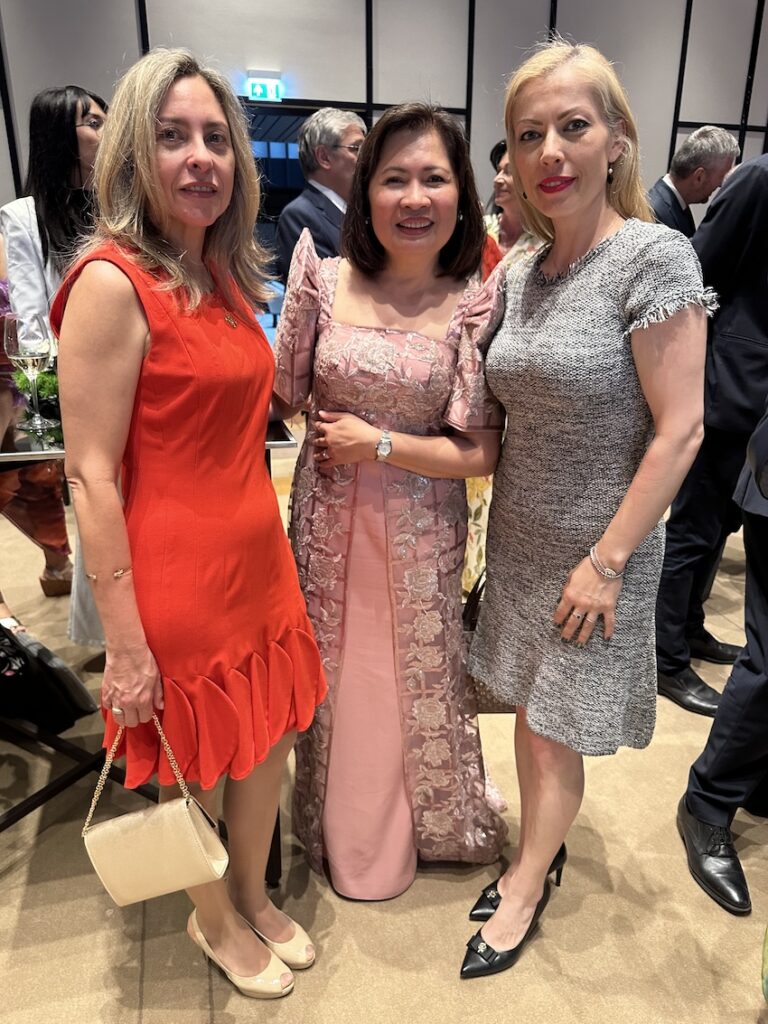
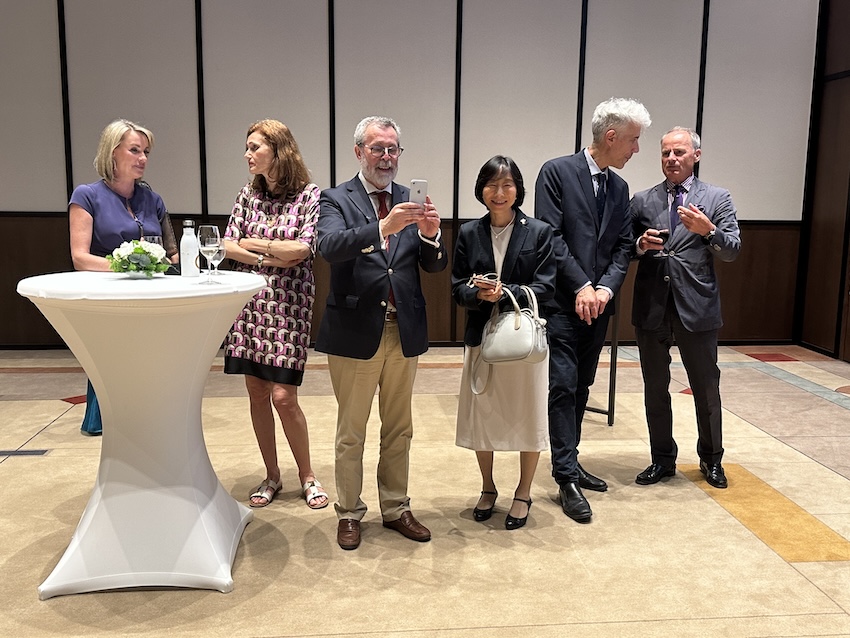
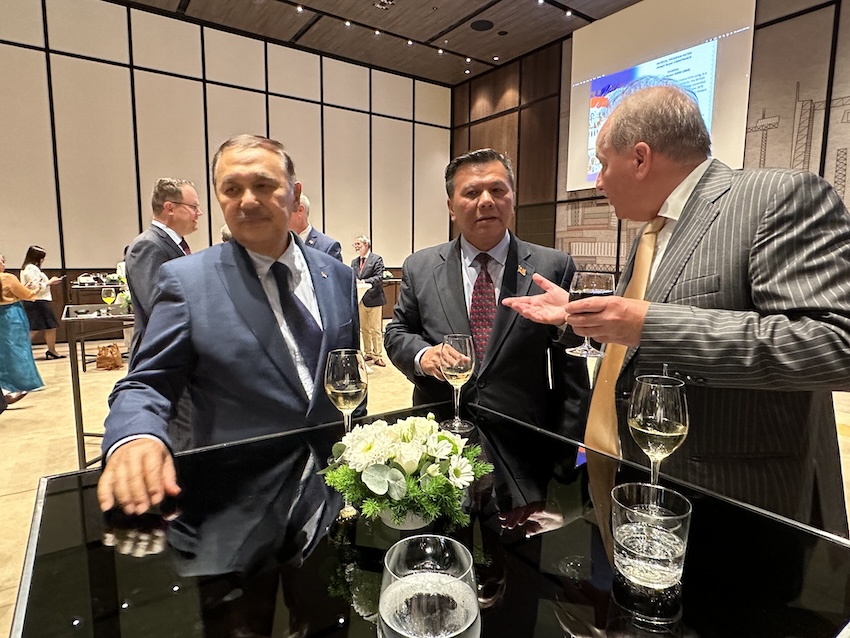
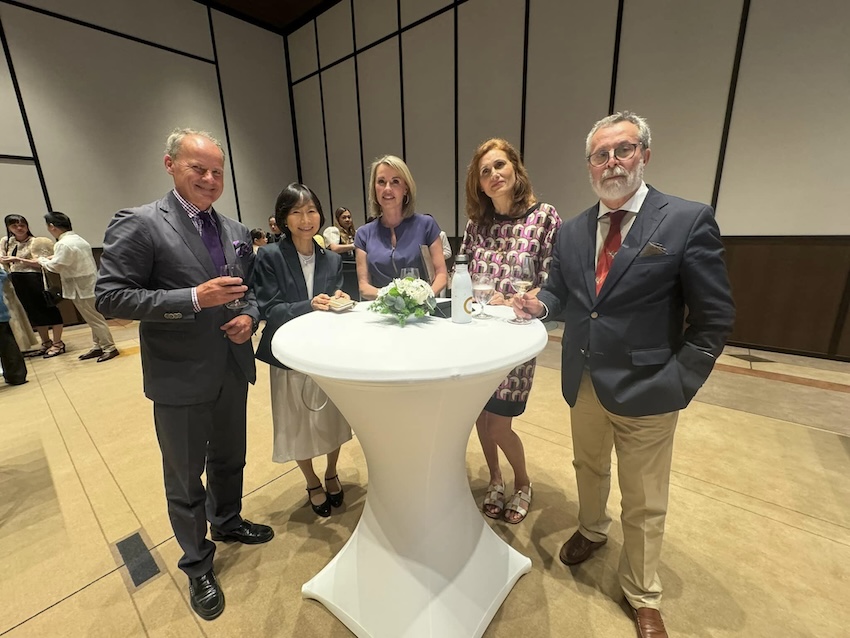
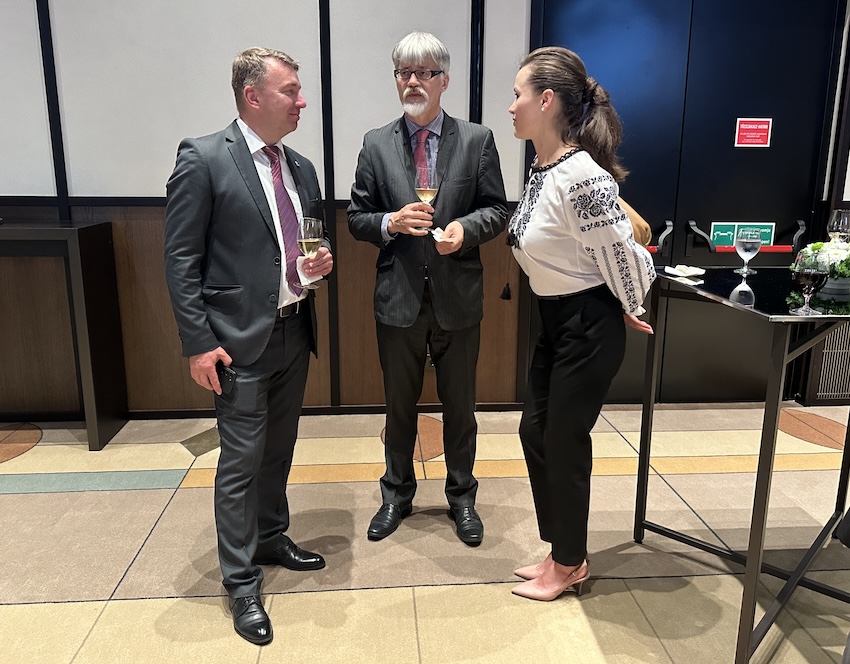

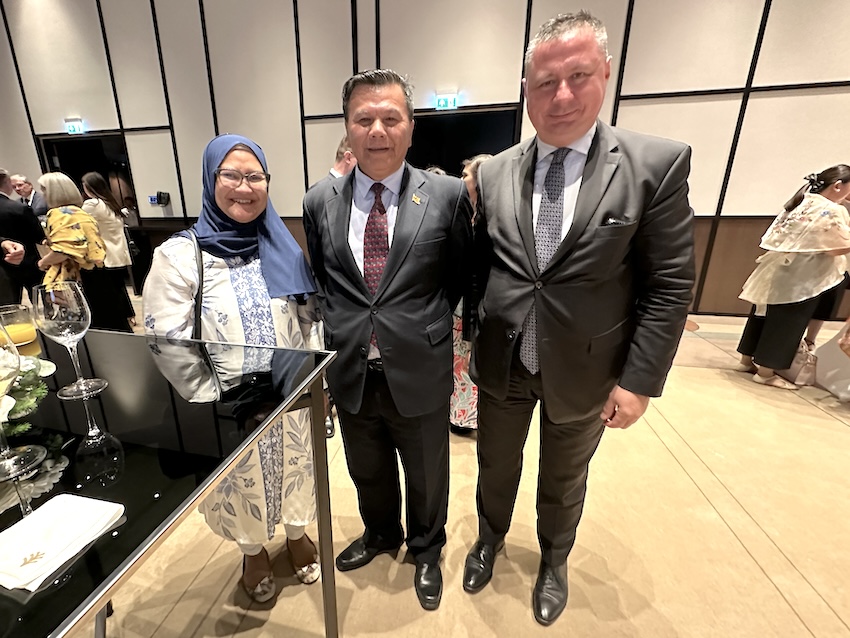
Source: Embassy of the Republic of the Philippines
Photos by the Embassy of the Republic of the Philippines and DPA

